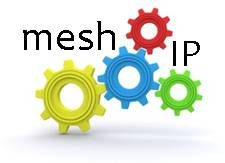 For anyone who has an internet connection, paying attention to your network security should be one of the most important things you can do. With a well maintained and managed network, you won’t need to worry about viruses or compromising sensitive data and access. Here are some simple steps you can take to make sure that you are protected:
For anyone who has an internet connection, paying attention to your network security should be one of the most important things you can do. With a well maintained and managed network, you won’t need to worry about viruses or compromising sensitive data and access. Here are some simple steps you can take to make sure that you are protected:
1. Install and use a credible Anti-spyware, Anti-virus software package
Spyware can present a major problem, especially in the form of key loggers that steal your passwords so make sure that your anti-virus and anti-spyware definitions are kept up-to-date, and run regular full system scans.
2. Keep your Operating System updated
Updates are critical to the security and reliability of your computer. Some of these updates address bugs and potential exploits in your computer, so you should keep your operating system up to date to ensure you’re have the latest protection.
3. Secure your Wireless connection
* Use WPA2 encryption. This is better than other encryption methods.
* Hide your SSID or change its name to something non-descript or common (i.e. “Router1”)
* Change the default admin username and password on your modem router with strong, varied usernames and passwords (then document them and store them in a safe place)
* Use MAC address filtering to limit wireless access to only those devices whose MAC addresses are allowed
* If you don’t use wireless networking, then turn it off
4. Configure and use a Firewall
Firewalls require some advanced configuration to work properly with some games and software, but it is well worth your time to configure and use them. Firewalls help protect against malicious software and prevent people from traveling through your internet connection to compromise your local network by limiting which ports can be used, from what source IP address, and what type of traffic. It’s recommended that you start with a block-all policy and then add rules to allow access from trusted or known sources.
5. Common threats
* Never open email attachments, email links or instant messages from people you don’t know.
* Be careful about accessing your network from shared computers or public networks (wireless hotspots)
* Be careful when web browsing. Downloading torrents or unauthorised versions of software is one of the easiest ways to undo your network security.
6. VoIP Security
Protecting your computers from online threats is essential, as is protecting all devices that use and are connected to the internet. To make sure that your system is more resilient to network attacks and fraud, we recommend you do the following:
* Protect the administration and remote management interface by using a strong password and a non-standard access port. Treat them like credit card numbers and keep them confidential
* Use alphanumeric passwords and usernames, and make them different from your extensions; especially if you have remote extensions or Direct Inward Service Access (DSIA)
* Block outbound dialling from your voicemail system to prevent Dial Through Fraud (DTF)
* Only allow SIP authentication and inbound call requests from trusted IP addresses. Block all others
* Restrict the destinations phones can call by configuring dial plans, call routes, and user access
* Make use of an intrusion detection system (IDS) and actively monitor your calls
* Delete employee authorisation codes when they leave your company
* If you are selling or discarding your VoIP hardware, make sure that you factory reset it and check that all SIP authentication usernames and passwords have been removed
Failing to secure your PBX or VoIP adapter may result in the following:
* Toll Fraud – utilising your PBX or account details to make calls at your expense
* Obtain unauthorised access to your system resources, information, privileges and/or listening to your calls and voicemail (through fuzzing, sniffing, or brute force attacks)
* Denial of Service – disabling your voice communication using packet floods
These security steps are critical to ensure your protection against internet attackers. If you require assistance configuring or implementing any of these recommendations, contact a certified and credible IT professional or PBX system integrator.
By setting up your network properly and using reliable security policies and procedures, you can sleep more soundly and feel confident that your computers, network, and phones, are as safe as possible.
- The Customer Edge Drives the Need for NaaS - June 25, 2023
- Blockchain Evolves And Secures - January 13, 2019
- Bessemer Ventures’ 2018 Cloud Computing Trends - February 25, 2018

